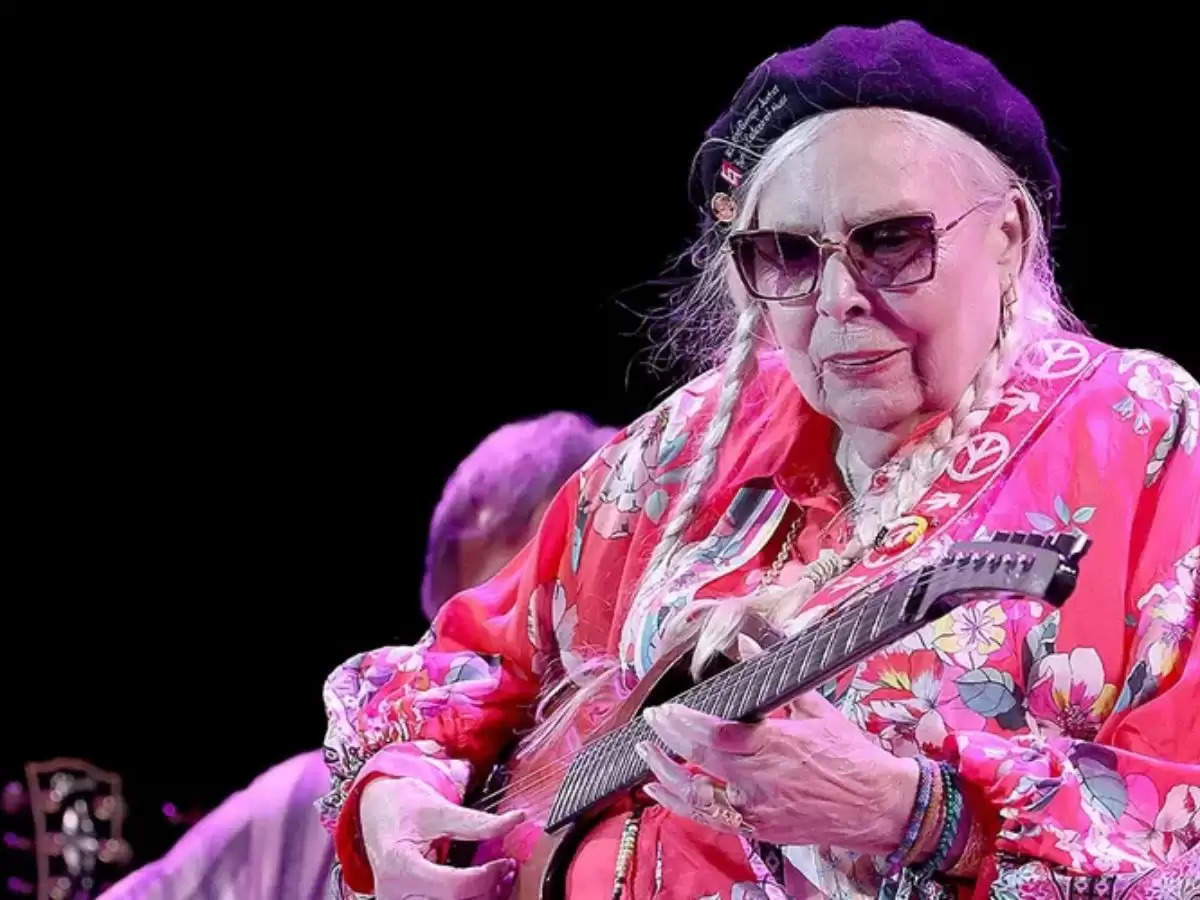80-year-old Joni Mitchell incredible comeback, a combination of music and struggle

A1 Digital India News: Despite the size of the open-air, highway-side venue, the crowd of 17,000 devoted fans was treated to a spectacle that felt like an intimate, fascinating glimpse into the life of the 80-year-old Mitchell: a plush (yet still appropriately regal) retreat to a comfortable seat as a friend and fan — sipping pinot grigio by the light of cozy lamps and belting out a song (or 25) when the mood strikes.
It may sound cozy, but getting to this hot victory lap was a hard-won victory for Mitchell — a brain aneurysm in 2015 left her unable to talk or walk, and the need to sing her own songs again required me to look up videos of her playing her guitar. But adversity is nothing new for the Canadian artist, who suffered from polio as a child, and after years out of the public eye following a health crisis, the Grammy-winning Rock and Roll Hall of Famer surprised the world with an unannounced comeback. on the stage of the Newport Folk Festival in 2022.
A proper headlining event at The Gorge Amphitheatre in Washington in June 2023 and her heartfelt performance at the Grammys in 2024 give a wider audience a chance to experience the depth and gravitas she's still capable of bringing to a show. She was accompanied at all concerts by Michelle's alleged follower Brandi Carlile, who described herself as "my ambassador." Naturally, Carlile joined Michelle on stage at the Bowl on Saturday, radiating joy and nervous excitement as she sang alongside her hero and served as the evening's de facto female MC/hype.
Carlile also revealed that Joni Jams — who performed in Michelle's regal living room "five or six years ago" — helped Michelle recover after the aneurysm. Friends started out and musicians sang their own songs during Michelle's recovery, with Carlile describing the experience as "awesome"; Soon, Mitchell began singing a verse or two from the comfort of his couch. Now, he has gained enough vocal control to hold his own over an audience of thousands.
"Johnny is going to destroy us right now," Carlile said with a Cheshire Cat grin, before Mitchell sang blues highlight "A Case of You" in a resonant, raspy voice. The statement could have easily been inserted in the moments between any song, given how often people could be seen wiping away tears at the icon's lyrically sharp meditations on love, pain and our short lives on a rock surrounded by a giant gas ball.
"I'm so glad he was my friend, because he brought me out of retirement," Mitchell said laughingly about Carlile during the show.
Thanks to a backing band of Blake Mills, Robin Pecknold, Jacob Collier, Lucius, Annie Lennox, Marcus Mumford, Jon Batiste, Alison Russell, Wendy and Lisa, Rita Wilson, Celis and others, Mitchell's recognizable music is more jazz than pop-music for a reason. The compositions look like compositions, expanding and contracting depending on the lead melody, sometimes bizarrely ornamented and sometimes blatantly unadorned. Though the Bowl cooled a bit by the end of the evening, the melodic tapestry of Mitchell's music kept the crowd enraptured.
Blue (1971) was Mitchell's most popular, most enduring album, while Court & Spark (1974) was her highest-charting studio LP (No. 2 on the Billboard 200, making it the first album to reach the Billboard Hot 100 top 10 with the single "Help Me"). But Hejira (1976) is her most mysterious, alluring album (and easily one of her top five), so when Mitchell and company put together a Hejira-heavy setlist, it was an unexpected, exciting curveball. “I don’t want to scare anybody, but you just heard Joni Mitchell sing ‘Hejiri’!” Carlile gushed later in the night on the third song. The evening ends with less than half of that moody, reflective classic (“Shelter of the Pathways,” “Coyote” and “Amelia” are also performed), which was born out of a tumultuous period in Mitchell’s life. Mitchell played several tunes from her final performance at the Bowl on Saturday, and two of them — “If I Had a Heart” and “The Sea of Sorrow (Jobs’ Sad Song)” — vividly portray the confusion and bitterness that can result from trying to understand a cruel and hateful world. But according to Carlile, Mitchell was "concerned" that the subject matter was so sad, so he instructed the band to sing his playful, catchy "God Must Be a Boogie Man" after this last tune, a loosely-styled song inspired by Charlie Mingus on which Jacob Collier played his own melody on the keys. "'God is dead' – Nietzsche. 'Nietzsche is dead' – God," says Mitchell, laughing heartily when the song ends.
The show was divided into two segments with an intermission, and the songs Mitchell chose to end each were the evening's most emotionally heartfelt moments: "Both Sides, Now" and "The Circle Game".
